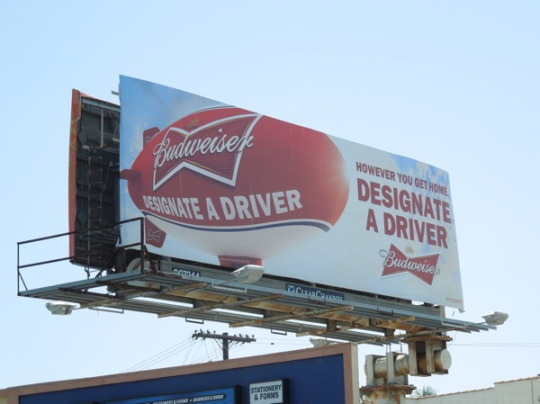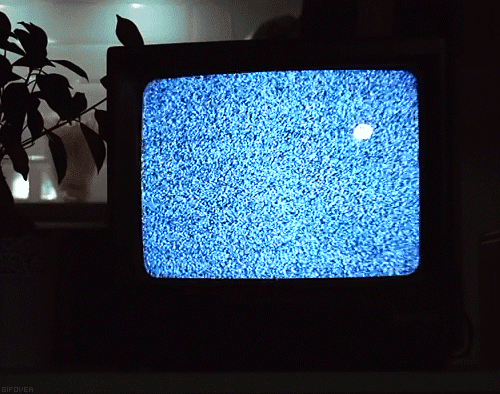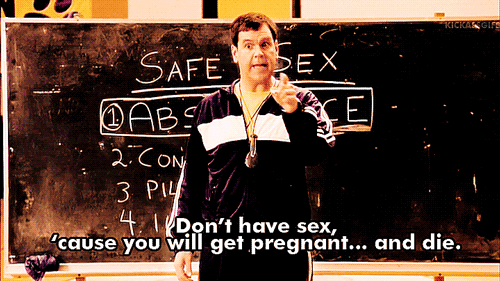Text
Bullseye Marketing Research
When Public Health Does it Right
Does anyone else remember when VERB was a thing? Like this commercial, or this

or this

or this

(Better yet, does anyone remember Hillary Duff? #neverforget)
VERB was everywhere! There was no escaping this campaign: on TV, your cereal boxes, posters at school, billboards, radio, Don Fransico Presenta, your mama’s house....literally, everywhere.

(I remember when my cousins were so excited when the commercials would come on and they would point at the screen saying, “Hey, that’s my verb!”)
So was bombardment of this campaign the main reason for it’s memorable/successful effort to get tweens to move? Not really, it was more targeted audience marketing.
From what a report by Huhman and associates show, the VERB campaign was successful because it segmented different marketing approaches by age and racial/ethnic groups. So why did this whole campaign work overall with tweens in the first place? Well, tweens are in a weird space in time that is not really adolescence and not really childhood but still a critical moment for identity formation and health.(It was the apex of my awkwardness). At the same time, most tweens want to be included among their peers. What VERB did was use this need by advertising team/skill building sports that showed tweens having fun and building character.

Meanwhile, the CDC, who was responsible for VERB, identified 4 racial and ethnic groups to target this campaign; Black, Asian, Latinx, and Native American kids. Researchers used cultural ideas and responses in the campaigns while at the same time tailoring to parental involvement. For example, Latino children were told in commercials a Spanish saying “Ponte la Pilas” which literally translates to “Put on your batteries” and encouraged family activities for physical activity.

(It’s basically saying get out of your comfort zone/put more energy into things...)
For most of the 2000s, it encouraged young teens to combat obesity and did it successfully. The main lesson learned in this campaign was that targeting audiences produced more positive results rather than clumping every tween/kid in the U.S. Now that that ship has sailed into PUBH history, what could be the next best campaign for prevention and cultural change?

(Reenactment of Public Health Specialists brainstorming)
Well whatever the cause may be, it’s always important to emphasis that the more targeted the audience and the more specific it’s marketing, the more likely you will have successful campaign. Whether you market to race, ethnicity, age, family role, or any other category, the main goal is to get people to have a healthier outlook by accommodating for the circumstances and barriers of oppression preventing them from attaining overall health.
There are plenty of new avenues to target audience such as social media, cross media platforms, and other non-traditional areas. (Besides, the majority of U.S. adults use social media anyway; might as well make it useful). And it’s not like we haven’t had anything as successful as VERB, look at Truth.com. We just have to brainstorm, research, and communicate the next health campaign. So come on Public Health specialists, it’s time to put on our logo t-shirts and get creative to motivate people into healthier lifestyles.
Communication: it’s what we do
As always
Knowledge is power
#verb it's what you do#public health#pubh340#yellowball#hillary duff#commercials#target market#target audience#marketing research
0 notes
Photo
Dream Car

‘60 Chevrolet Impala Bubble Top
414 notes
·
View notes
Text
Public Health ©
Branding and Public Health
TW: some disturbing images in PSAs
Why is it that whenever public health tries to brand a healthy idea, it’s sometimes feels like it’s trying too hard? Like what is this...

https://www.youtube.com/watch?v=kHFnc_eV4Lg
Granted PSAs have gotten better like this one about drinking and driving or this creepy one about anti-smoking. However, there have been efforts to move away from PSA format (finally) like The Truth Campaign that uses multiple platforms such as social media, commercials, and posters to increase anti-smoking awareness.
But why is it hard to combine public health and advertising? Well the reason is that public health has no "stickiness" in that, we haven't created a campaign that has stuck towards people as much as we want Bau and associates point out. We don’t have any creative logos or fancy fonts to bring healthy initiatives to people. Granted that there are memorable campaigns like Truth and Don't Drink and Drive. Furthermore, corporations are getting in on the act.

(See, even Budweiser has Public Health commercials)
So what else can be done to improve this “stickiness” that public health campaigns lack? For one thing, we could try branding....no it’s not going corporate or selling out, just a change of strategy. Honestly, who can say that they know more than 10 public health campaigns over 10 brands?

(Go ahead, I dare you)
From the marketing side, brands often portray something personal from the company to the consumer. If you ever end up going to your favorite store simply because of the atmosphere/service/products/memories/experience, then you inadvertently built a personal relationship to that company/brand. Public Health needs to take note in this department because we as public health experts sometimes jump to telling people what to do and not establishing the fact that we care about their health. And when we do try to do it, it just comes off weird or forced in some cases

(Does this really look like the face to tell you no to crack?)
So public health has to step up it’s game and go for something new, innovative, and creative. Logos with memorable fonts like the Chicago Wears Condoms campaign has helped been seared in the minds of many CTA riders because of the Chicago skyline and rubbers.

^ It’s creative and easily distinguishable for any Chicagoan while promoting prevention. So public health experts just have to keep a creative eye on the look out for promoting healthy behaviors and plug that into any facet of everyday life. Because if there’s one thing I learned about marketing and advertisements is that once it sticks, that damn commercial will be stuck in your head the rest of your life.

(BTW Happy Birthday Chicago:180 years of good looking skyline)
#this has been a psa#chicago#chicago wears condoms#pee wee herman#public health#PUBH340#brand#logos#health marketing
0 notes
Text
“They’re mental”
Mental Health, Media Perception, and Stigma

Who here doesn’t sit back after a long day of work/school/life and just watch something like a movie/TV show/ or go on social media? I know it’s times like that where I want to shut off my brain for two seconds and relax...until I see something that doesn’t seem right.
Media perception of mental illness has been less than favorable by portraying people with such issues in a negative light. According to a recent review published by Jane Pirkis and Catherine Francis, the majority of media portrayals of mental illness are often linked with violence or lumped into the same category. Schizophrenia was perceived the worst. Other sources even go further that media hardly talks about treatment.

( I see you novelas and it ain’t cool)
Now you’re thinking, well duh, this looks hella exaggerated, i’m not dumb. why would anyone trust TV/movies for this?
Surprisingly, a lot of people perceive these interpretations as reality. Shit, only 38% of local news stories overall reference medial sources. Even more, these stories sometimes report “factually incorrect information” about health. The times that they did only focused on Autism and depression.

(Who knew this didn’t portray mental illness realistically?)
So yea, there have been efforts to raise awareness of mental health, but it’s not always easy, just look at this recent example from Lana del Rey . Or the time Britney Spears suffered a mental breakdown? Or how news sources portrayed celebrities such as Amy Winehouse and Whitney Huston, both who suffered severe substance abuse and mental health issues, as “ok” to make fun of because of their conditions?


(Miss you both)
So why does media perception matter in mental health stigma?
We may not always understand what are the differences in mental health, how to treat them or help those who are undergoing those issues. But to simply jump to conclusions because of something we saw on TV or heard a 30sec news story about it doesn’t make us experts. In fact, the majority of people suffering from a mental health are not violent as portrayed in TV shows and movies; this just adds more stigma to those suffering from these issues. Finally, just by putting a face (celebrity) to an illness in a negative light does not make stigmatizing any better. We internalize this stigma rather than analyzing what can be done to better understand mental illnesses and overall mental health.

(media doesn't work sometimes. believe me, i tried turning on and off again)
So the next time mental health in the media misinterpret issues, don’t just jump to conclusions. Stop, analyze, and fix the stigma by addressing it
*Knowledge is power*
0 notes
Text
SEX (ed)
When...

(GASP)
(Calm down, haven’t even started the blog yet -_-)
...When it comes to that filthy word,sex education in the U.S. breaks down to 2 big factions: talk about it or don’t. If you don’t talk about any sexual health/reproduction/family planning, teens have a higher risk of harm. And when you do, some states don’t even require that info to be MEDICALLY ACCURATE!!

(Sorry Coach but you gotta take a knee on this one)
So, what’s one way to provide medically based information with sex.ed? One was is changing the way we deliver the information. Antanas Mockus Sivicka, ex mayor of Bogotá, Columbia, used effective ways to limit police corruption by replacing traffic cops with street mimes. Weird huh? Well it happened to work; it reduced traffic accidents, mostly because the mimes put people on blast.

(Side note: who isn’t afraid of mimes?)
Alright, Mockus used mimes in delivering an effective message, but why was it so effective? Well, the method behind this is the umbrella term of Framing or a message that holds a point of view or certain type of context. Any message could come across either in a gain-framed, where people gain something, or in a loss frame, where someone loses something. Depending on the situation, one version is more effective than the other. In the case of adolescents who use drugs or know peers that do, PSAs with a loss frame held a greater impact than those with gain frame.
For sex ed, there are various ways to deliver quality info to the right public possibly outside out of abstinence only education. More creative measures could take place such as PSA’s/commercials advising for family planning like this one. However, the key is to provide medically accurate information which could include YouTube ads/PSAs. Once more, i advocate the power of memes because they could spread information and provide links to other forms of education. All of these methods use the loss frame.

(Rough Translation: You can’t have a party without party hats).
I’m not too creative with marketing ideas, but that’s why public heath needs more people who know how to get these actions into plan. Furthermore, a main hurdle everyone needs to cross over is communication; actually having an open and honest dialogue with teens and trainers of sex ed knowing that, although it may be taboo for some, it nonetheless is something worth mentioning for future protection and prevention.
As always...
*Knowledge is Power*
0 notes
Text
Anti-Women’s March Memes or How I Learned to Keep Worrying and Love Informatics
TW: ignorance, language
STOP the STUPID MEMES

Last week, over a million protesters participated in the Women’s March in the U.S. and around the world. Although there was some rhetoric against the current Presidential administration, many marchers believed in the affirmation of equality. This includes the assurance of future progress for Women’s issues such as equal pay, upholding Roe v. Wade, and understanding different view points in an intersectional lens (race, gender, sexual orientation, ethnicity, documentation status, SES...)
Seems easy to understand right?
Then I see shit like this on social media in response to the Marches...


(Sometimes, I get the impression people somewhat believe what these memes are saying) Well let me tell you something..
1) Just because you see a joke on the Internet doesn't make your point valid
2) The amount of misinformation on the state of Women’s Rights in the U.S. is embarrassing
There are ALOT of issues that have restricted, to an extent, women’s rights in health issues. Recently, women in the state of Ohio have more restrictions on abortions with the recent “heartbeat bill” while trans women are at risk of discrimination against doctors who refuse to treat them under “religious freedom”. Despite just two examples, the point is this: women’s rights are being encroached and must maintain a vigilance against these infringements. That is when we as public health specialists need to expand on how health literacy is consumed.
Like Carrots and Coke, we need to change our strategy in how information is reached. One area in the Internet would include “informational memes” in which factual evidence is delivered in a witty remark. If done correctly, then making a viral meme may show some positive effects on health literacy and informatics.



(Just some examples to show how it could be done)
Like a brochure, information is presented in a short and concise format that could combat misinformation such as women’s rights in the U.S. are stable. If issues such as reproductive justice, health disparities, or any other topic are portrayed in a way that is visual,informational,and factual then viral memes/informational pictures could combat misinformation as well. Not only would it counter balance opinionated “jokes” but also serve as a gateway towards links and websites that offer more information. This strategy would coincide with other Internet resources (websites, links to journal entries, articles, etc...) but hopefully serve a NEW audience on social media.
Again, this is just a suggestion/possibility and not a BE ALL Solution to informatic strategies
*Don’t forget; knowledge is power. *
2 notes
·
View notes